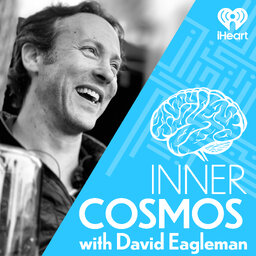Ep45 "Why did a man shoot himself after hearing the lottery numbers?" (Time Traveling: Part 3)
Who is the most disappointed medalist at the Olympics? How do brains simulate what might have been? How can you get your kid to wear a jacket in the cold? What if you had to face more successful versions of yourself? And what does any of this have to do with why menus should be shorter, why empires divide, and why you should always put yourself in the shoes of future people? Join Eagleman to learn the capstone secrets of mental time travel, and what these have to do with the emotions of regret and relief.
In 1 playlist(s)
Inner Cosmos with David Eagleman
Neuroscientist and author David Eagleman discusses how our brain interprets the world and what that …Social links
Follow podcast
Recent clips

Ep138 "Why do our political brains mistake opinion for truth?" with Kaizen Asiedu
1:07:52

Ep137 "Do cures ever create the next crisis?" with Thomas Goetz
47:09

Ep136 "Why do we care about mattering?" with Rebecca Goldstein
41:31
 Inner Cosmos with David Eagleman
Inner Cosmos with David Eagleman